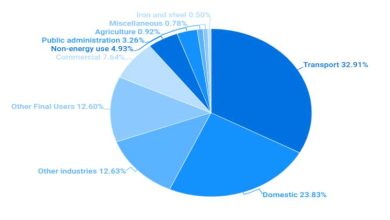POS Systems and ERP Systems – How does the ERP system ease the load of businesses?

With the evolution of the internet and digital world, it has now stepped into the industry of industrial and business payments. POS and ERP are prime examples of technology in the business payment sectors. They are used to ease businesses in the payment sectors.
How?
Here are the complete articles explaining how POS and ERP systems can help businesses ease their load:
ERP System
An Enterprise Resource Planning System (ERP) system is a software program that enables companies to plan, track and manage their entire business.
It’s often called enterprise resource planning because it helps companies organize their internal processes and make them more efficient. It also integrates with other systems, such as inventory management software, so that they can be managed together as a cohesive whole.
ERP systems are designed to allow companies to quickly access data about their operations and make informed decisions about how they should be managed.
POS System
POS System is a database that helps in managing point of sale transactions. POS systems are used in retail stores, restaurants, bars, and other businesses that sell merchandise on the basis of cash or digital payments. This can be done through credit/debit cards or cash. The POS system keeps track of the inventory of items sold by a merchant and also keeps track of the transactions made by customers through credit/debit cards.
Difference Between POS and ERP Systems
Both systems are intended for one purpose: to ease businesses and help them manage their operations efficiently and accurately.
However, both systems are different from each other and have different purposes. They are not the same.
ERP is a complete suite that includes HR management, project management, sales, ideas, supply chain management, and overall everything related to the activities of a business.
The POS system, unlike ERP, it’s only limited to finance and to manage the payments and their records, hence named “Point Of Sale”.
This system is usually placed in the checkout corner of every consumer shop and is most used by the B2C companies where the customer purchases from the business.
The POS manages the payment getaways, transactions, records, exchanges, sale records, and every other thing related to finance and sale.
In simple language, you can that ERP is a glue that sticks to all the operations and activities happens that in a business, while POS is a system that manages the finance and payments getaways solution only.
What Consists in POS System
Here are the things that consist in a proper POS system:
Transaction processing system: This is a computer that processes transactions from the register and keeps track of them electronically on a database or other software platform. The transaction processing system captures information about each transaction, such as the time it was made and who made it and stores it on your POS system.
Point of sale terminal POS terminal: The terminal is where customers purchase items from your restaurant or store. This is also where they pay for those items by swiping their credit cards or inserting cash into an appropriate machine. Some terminals have space for loyalty cards, coupons, gift cards, and more.
Cash drawer: The cash drawer is where all money collected during sales is stored when they’re ready to be counted by the accountants after closing time. Your accountant will use this data to calculate returns and profits for each day’s sales as well as taxes owed by your business at tax.
Point of sale printers: Printers allow you to print out receipts for customers as they pay for their purchases at your store. They also allow you to print out reports that show which products sold well or poorly, keeping you informed about trends in your store’s sales performance over time.
What Consist in an ERP System
The ERP system doesn’t require any particular physical hardware like in the POS system. In fact, it’s wholly based on software. The hardware system, it only requires a PC, a fast and reliable internet connection, and a software terminal to connect with the ERP hub.
How does the ERP system ease the load of businesses?
An ERP system allows you to automate many of your business processes and significantly reduce costs. By automating tasks that previously required manual effort, an ERP system will save time and money while improving productivity. In addition, it will provide detailed reports that can be used to improve operational efficiency and reduce error rates across the organization.
It can be used by small as well as large businesses as it provides various features that can be used by any kind of company. It helps you in managing all your financial and operational information with ease. ERP system makes it easier for you to track data and make informed decisions on how to improve the performance of your business.
It provides an efficient way for businesses to track all their operations efficiently. With the help of an ERP system, businesses can keep track of every aspect of their business like sales, inventory, production, etc. This helps them in making informed decisions regarding their operations.
How does POS System help businesses ease their load?
The POS system eases the business owner from the burden of managing their cash flow. It also helps them to give their customers a better experience.
POS system has various benefits for businesses:
- Reduced operating costs – The cost of running a retail store can go up due to inefficient operations and poor employee management. With a POS system, you will be able to manage your staff more efficiently and cost-effectively. You can save time, money, and energy by using a EPOS system.
- Improved customer service – Your employees will be able to serve your customers better with the help of a POS system. Your staff will be able to give each customer individual attention and take care of them accordingly whether they are paying or collecting payments for something they want or need from you to make sure that no customer leaves unsatisfied as there is no chance of forgetting anything during transactions when using a POS system like ours!
- Can be installed at any location – POS systems can be installed at any location that is convenient for customers to use. They also make business owners’ lives easier as they can now conduct all their cashiering activities anywhere and at any time without having to worry about the logistics involved in doing so in person. These days, there are so many options available when it comes to choosing a POS system that you may find it hard to decide which one will work best for your business needs.
Benefits of ERP System
There are many benefits of implementing an ERP system in your company such as:
Optimization: ERP systems provide much-needed visibility into your business processes and help you in optimizing them. This helps you to find errors, improve processes and increase efficiency.
Cost reduction: ERP systems help you in reducing costs by automating repetitive tasks, freeing up resources, and increasing productivity. They also make it easier for you to get better deals when procuring goods and services from vendors.
Increased efficiency: ERP system boosts productivity in several ways. It helps in reducing the time required for manual work and also reduces labor costs by automating processes. The decision-making process becomes more effective and efficient as it is done through automated systems that are easy to access and use.
Improved financial management: It improves the financial management of companies by increasing their cash flow and profit margins by eliminating wasteful activities like manual processing of documents or invoices etc., which involves a lot of paperwork and time-consuming activities to do them manually; this reduces their costs as well as increases their profits.
Improved supply chain management: Supply chain management is also improved with ERP software because it provides real-time information on customers’ orders etc., which helps them in managing inventory levels better so that they can manage stock levels accordingly without any wastage of products or services etc., this will help them reduce costs.
Benefits of POS System
POS systems are a great way for your business to track inventory, sales, and other metrics. They’ll help you keep track of the data you need to run your business, as well as make running your business easier. Here are some of the benefits of using a POS system:
Inventory management: Inventory management is one of the most important functions of any grocery store. With a POS system, you can easily add new items to your inventory list and monitor how much inventory you have on hand at all times. You can also update prices on products in real-time, which is always nice when you’re selling out of something!
Sales tracking: Sales tracking is another important function for any grocery store owner or manager who wants to know how much money they’re making each day or week. With a POS system, it’s easy to see which products are selling well and which ones aren’t performing so well. You can also adjust prices accordingly if necessary!
Customer loyalty: Customer loyalty is another important metric that should be tracked by any retail business owner or manager who wants their business to grow and succeed over time!



